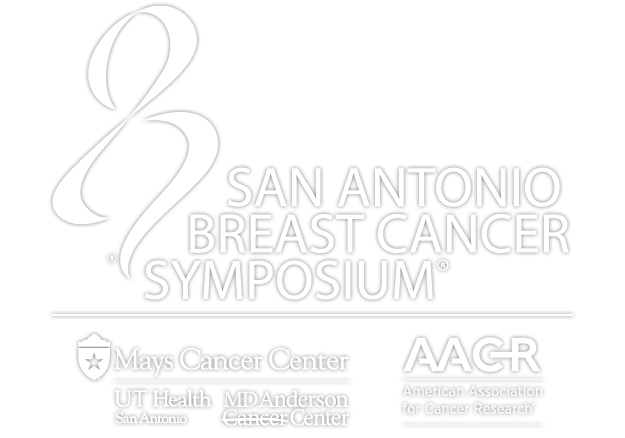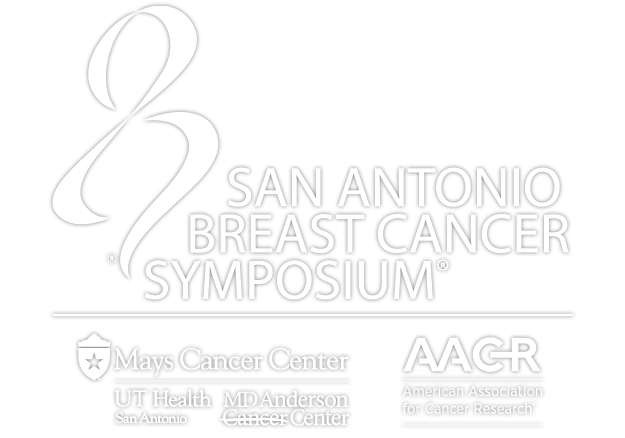Poster Spotlight Session 6: Prognostic and Predictive Uses of Cell Free DNA
Wednesday, December 6 • 7:00 a.m. – 8:00 a.m. • Stars at Night Ballroom 1-2
Presentation: Circulating tumor DNA (ctDNA) monitoring of estrogen receptor-positive, human epidermal growth factor receptor 2-negative (ER+/HER2-) high risk breast cancer during adjuvant endocrine therapy

Lajos Pusztai, MD
Yale University Cancer Center,
New Haven, Connecticut
What is your presentation about?
The goals of the DARE (NCT04567420) multicenter, randomized ctDNA surveillance and intervention trial are to assess (i) the incidence of ctDNA positivity during follow up of stage II-III ER+/HER2- cancers, and (ii) if treatment with palbociclib and fulvestrant improves relapse-free survival compared to continued standard of care adjuvant endocrine therapy in ctDNA + patients with no imaging evidence of metastatic disease. We present results of a protocol-driven interim analysis to determine if screening eligibility criteria is adequate to keep randomization rate > 15% of the screened population.
We found that ctDNA surveillance yielded 6.8% and 3.3% detection rates at patient and assay levels, respectively. Serial screening increases detection rates as 27% of positive ctDNA tests occurred after an initial negative result. We also learned that 71% of ctDNA+ patients had true molecular relapse without imaging detectable metastatic disease. The trial remains open with a goal to randomize 100 patients, randomization is open for any patients who are Signatera ctDNA+ including routine commercial screening.
What makes this topic important in 2023?
The prevalence of stage I-II breast cancers increased in the past 20 years, and despite excellent overall prognosis, stage I-II cancers account for over 60% of annual breast cancer specific deaths. ctDNA monitoring provides an opportunity to detect molecular relapse, indicated by ctDNA positivity, before clinically apparent metastatic recurrence. We hypothesize that change of therapy at the time of molecular relapse might delay, or even prevent, metastatic recurrence.
How did you get involved in this particular area of breast cancer research, care, or advocacy?
Breast cancer-specific survivals are high for stage I cancers and improved significantly for stage II and III cancers since 2000, but despite these improvements, the majority of annual breast cancer deaths are due to metastatic recurrences of stage I/II cancers. This is explained by the large and growing number of individuals diagnosed with early-stage disease and large decrease of death from stage III cancers. To substantially decrease breast cancer death at population level, strategies are needed to further reduce death from stage I-II cancers, ctDNA monitoring and early intervention before clinically apparent metastatic recurrence offers a potentially effective strategy that needs to be tested in prospective clinical trials, like DARE.
Presentation: Longitudinal Neoadjuvant and Post-operative Evaluation of Circulating Tumor DNA in Early Breast Cancer using a Tumor-Informed Assay: Updated Analysis of the TRACER Cohort

Mitchell J. Elliott, MD
Princess Margaret Hospital, University of Toronto,
Toronto, Ontario, Canada
What is your presentation about?
We present data evaluating the prognostic and predictive role of circulating tumour DNA (ctDNA) in patients with early breast cancer using the RaDaR® assay (NeoGenomics). We performed retrospective analysis evaluating ctDNA detection in a cohort of patients with early breast cancer (all receptor subtypes) enrolled at the Princess Margaret Cancer Centre (Toronto, Canada). Participants provided plasma samples before neoadjuvant treatment initiation, on treatment, and during their routine clinical follow up. We present data evaluating the sensitivity of the RaDaR assay at baseline (prior to therapy) as well as how neoadjuvant treatment changes the ability to detect ctDNA throughout a patient’s clinical timeline. RaDaR was able to detect ctDNA in the majority of patients at baseline, with failure to measure ctDNA being a protective factor for disease recurrence. Our data also provides evidence that persistence of ctDNA on neoadjuvant therapy, as measured midway through treatment, is an independent risk factor for clinical recurrence. Furthermore, in routine clinical follow up, RaDaR was able to identify a lead time (time from ctDNA detection to clinical recurrence) in participants enrolled in this cohort.
What makes this topic important in 2023?
This topic is especially important in 2023 because of the movement towards personalizing the delivery of curative intent therapy for patients. Neoadjuvant chemotherapy is the standard of care for patients with high-risk early breast cancer, as determined either by aggressive disease biology (triple negative breast cancer, HER2-positive) or a combination of disease burden and biological features (hormone receptor positive/HER2-negative). While response to neoadjuvant therapy, as assessed by the extent of residual disease at the time of surgery, is used for risk stratification and to inform delivery of adjuvant systemic therapy, such estimates are imprecise at the individual level. Sensitive and specific assays to detect and quantify ctDNA present an opportunity to develop more individualized approaches to treatment. These data support the use of ctDNA assessment in prospective clinical trials to evaluate and validate the routine use of these tests in the treatment of early breast cancer. Further understanding of disease biology using ctDNA, identifying patients where treatment can be de-escalated (potentially saving toxicity) or escalated (potentially curing more patients) are important to deliver personalized therapy for patients with early breast cancer.
How did you get involved in this particular area of breast cancer research, care, or advocacy?
As a clinical fellow, I have the privilege to participate in the care of patients with early and advanced breast cancer. As medical oncologists we are able to do much good for our patients; we frequently run into situations where current treatments are ineffective at curing patients or are associated with significant toxicities. For me, being able to participate in studies looking to identify innovative approaches to personalize therapy for each patient is very important so patients are able to receive the right therapy at the right time — maximizing clinical outcomes.



